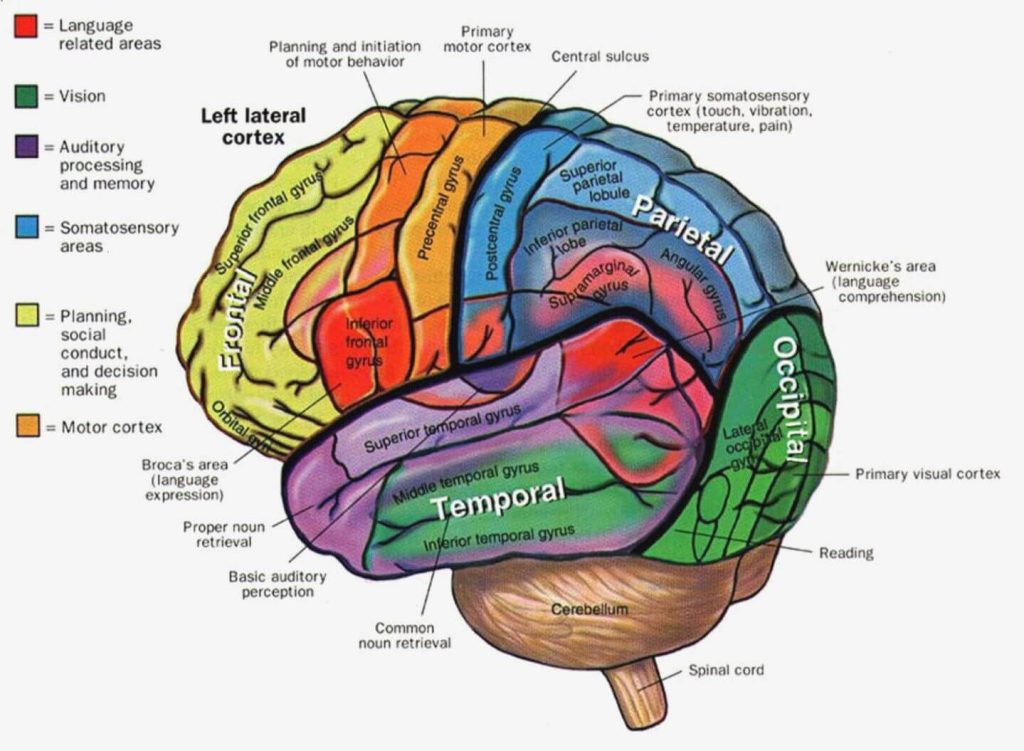Introduction
In Part 1 of History of Buddhism, a discourse was introduced to lay devotees called Advice to Sigālaka1. This discourse contains all the necessary advice to lay devotees on how to lead one’s life. In fact, if a lay devotee practices all that is stated in the discourse, the level of morality will be higher than another lay devotee who only follows the 5 precepts. This is because this discourse covers not only personal morality, it also teaches how to interact with the people around you, including your parents, family and colleagues. Hence, Refuge In Dhamma deems this discourse as the most important one for lay devotees.
For this series, it is very important to read in sequence for easy understanding and not to skip any article as they are closely linked to one another.
In Part 2 of the discussion of this discourse, we will be discussing about personal wealth protection.
Backstory

One morning, near Rājagaha, a person called Sigālaka was revering the 6 directions: east, south, west, north, below, and above. The Buddha was staying in the Bamboo Grove at that time and when he went for his alms round, he saw this person and asked him the reason for doing this ceremony. Sigālaka told the Buddha that he was following his father’s instructions before he passed away. Then, the Buddha proceeded to teach him the correct way to revere the 6 directions.
Wealth Protection
Giving up the 6 drains of wealth
After teaching morality to Sigālaka, the Buddha taught him how to protect his wealth. There are 6 ways a person can squander their wealth away: intoxicant consumption, roaming the streets at night, frequenting festivals, gambling, bad friends, and laziness.
Dangers of intoxicant consumption

Intoxicant consumption refers to any substance that causes a person to be addicted and loses control physically and mentally after consumption. Examples include drinking alcohol, consuming drugs and opioids and glue sniffing. In the discourse, the Buddha taught 6 dangers of substance consumption:
a) Loss of immediate wealth
About 95% of the countries in the world imposes taxation2 on alcohol with the highest being Hungary at 27%. With the relaxation of rules on marijuana in some countries like Australia, this “recreational drug” will also be an extra drain in wealth3. A gram of medium quality marijuana in Melbourne costs US$12 as at the writing of this post. Up to this point, we are discussing about legal intoxicant consumption. For illegal substances, the prices will be higher4.
Although the Buddha spoke about immediate wealth loss, there are deeper implications. The addicted person is incapable of working and the family may have to shoulder the financial burden of the addict, in addition to the mental stress that everyone around the addicted person will experience. On top of that, there are medical costs involved when the body starts to deteriorate. All these tangible and intangible costs can add up to form a huge burden on both the family and country.
b) Increased quarrelling
It has been shown in numerous studies that there is a high incidence of domestic violence happening after substance abuse because the user lost control of their inhibitors5. In this article6, it was found that nearly 80% of domestic violence are related to substance abuse. Although majority of domestic violence are committed by males, it does not mean females do not commit such acts. Therefore, seek help if you are a victim of domestic violence regardless of gender.
c) Susceptibility to illness
It is widely known that regular drug consumption, even small amounts, can wreak havoc to the body and many addicts die of overdose. The situation now is even worse as opioids used as medications for illnesses have become the new addictive substance for addicts. In addition to that, countries are beginning to legalise the sale of marijuana so addiction to marijuana will be another problem in the near future. Therefore, it is not necessary to go into detail the dangers of drug consumption and abuse here.
However, there is an intoxicant that needs to be addressed in more detail and that is alcohol. It is considered a ‘legal substance’ and readily available so the chances of getting addicted to alcohol is extremely high. Many lay devotees seem to think that drinking a little bit of alcohol every day is fine. This misconception comes from advertisements from alcohol manufacturers like Yomeishu and red wine who claim that regularly drinking of their products can enhance health. This Harvard article7 states that red wine can only claim to have associations to good health, not causation, and there are no academic papers on the benefits of Yomeishu. This article will discuss in detail the harms of alcohol even in small amounts every day.
d) Disrepute
In courts, substance abuse addicts are seldom called as a witness due to the unreliability of their state of mind. They can easily be countered by the opposing lawyers by bringing up their past records of substance abuse. Even among family and friends, addicts are often shunned and this makes it difficult for them to find help due to their past actions.
The fact that addicts can relapse easily despite making enormous efforts to rehabilitate makes it even more difficult for non-addicts to trust and help them. Although it may not be the addicts’ fault for their plight, it can be extremely emotionally draining for their family and friends to support them if they relapse.
e) Indecent exposure
Due to the lost of control of inhibitors after intoxicant consumption, people can exhibit many irrational behaviours. As recent as 2021, in Singapore, there was a case of a drunk man exposing his private part and peeing in public in front of enforcement officers8. In 2009, a Japanese pop superstar called Tsuyoshi Kusanagi, who was a member of the famous SMAP group, was arrested for indecent exposure. He was found naked on a park’s bench and heavily intoxicated9.
f) Weakened insight

The prefrontal cortex of the brain powers the ability to think, plan, solve problems, make decisions, and exert self-control over impulses. Upon intoxicant consumption, the functions of the prefrontal cortex will start to slow down until the point when it fails to work due to huge amounts of intoxicants being consumed. In such a state, it is impossible for the person to think coherently. Some people even experience blackouts, not knowing what happened to them.
Dangers of roaming the streets at night

Times have changed dramatically compared to the 6th century B.C. Nowadays, due to work shifts, excellent lighting at night, good law enforcements, availability of transport, abundance of food and myriad of night entertainment, it is not as uncommon to be out at night. In the past, dangers in the night began as soon as the sun had set but in the 21st century, crowds of people can still be seen gathering at midnight, especially during the weekends. It is only during the weekdays when people have to work in the day time that they retire earlier to rest.
Having said that, it does not mean that the 6 dangers of roaming the streets at night taught by the Buddha are irrelevant. The dangers still exist albeit at a lower rate and intensity. This of course varies from place to place but generally, people are active until a later time compared to during the Buddha’s time.
a) Oneself
There are dangers that one can experience when walking alone at night. Even in a safe country like Singapore, there are rape and murder cases that happened early in the morning and late at night. However, there are gadgets that people can carry with them to ward off dangers if they really need to work till late like loud alarms, mobile phones, etc.
b) One’s family
With the rise of technology, home security cameras have become commonplace. This can help to ward off potential dangers as well as capture videos for law enforcement to track down the offender if necessary. Also, locks are robust enough to stop offenders for a long enough time to call for help. With all these safety measures in place, it should be relatively safe to stay at home, even alone. However, there can be lapses like forgetting to lock the doors thereby giving offenders a chance to enter the house. Therefore, being vigilant about home safety is still a necessity.
c) One’s property
Building regulations have vastly improved compared to 2500 years ago. Unless you are staying in a slum, the buildings should have good protection against the weather and fire. The only concern is electrical devices and gas appliances in the house which can cause fire hazards if they are defective or left turned on for long hours.
Another possible danger that can happen to one’s property is being burgled. Again, security cameras and good locks can help ward off potential offenders but there is no better security than being physically at home to immediately respond to break-ins.
d) One is suspected of crime
Road blocks and police checks are usually done at night and if you are out and about late at night, there will be a high chance of you being stopped for questioning.
e) Rumours spread about oneself
Although it was mentioned above that people tend to stay up later at night in recent times, it does not mean that normal working people stay out until the wee hours. When this happens, everyone around the person will start to get suspicious if the person is not working the night shift. Questions will start getting asked and before long, rumours will start spreading. Even if the person has done nothing wrong, it will hurt the reputation.
f) Encounters all sorts of unpleasantness
Unpleasantness here refers to unpleasant incidents that tend to happen at night other than those mentioned above. One such example is fighting. As stated above, alcohol can loosen a person’s inhibitors to act irrationally, hence, we can see a lot of news of fights happening at night in places where alcohol is served.
Dangers of frequenting festivals

Due to advances in technology, festivals have become even more abundant and people are constantly seeking new festivals to participate in and this exacerbates the problem of roaming at night. Festivals need not be big projects with thousands of people participating. Every weekend, people will be frequenting pubs and clubs to ‘party’ the nights away. This is exactly what the Buddha warned about. Party-goers will always be asking:
a) Where is the dancing?
b) Where is the singing?
c) Where is the music?
d) Where are the stories (movies)?
e) Where is the applause?
f) Where are the drums (performances)?
Of course these are the old forms of festivals. The newer activities will include movies and all kinds of performances.
The Buddha is not trying to prevent lay people from having fun but he was advising them not to be too indulged in these pursues. If a person goes to parties every weekend, that is all the person will think about and nothing else. The Buddha would like lay devotees to have some spiritual training like meditation during their free time instead of steeping themselves in sensual pleasures.
Just as poor people can never imagine the pleasures enjoyed by the rich, earthly sensual pleasures can never compare to the pleasures in the heavenly realms. Poor people will be extremely satisfied to eat regularly without experiencing hunger yet the rich go for ambience, food quality, service quality and novelty. The differences in expectations are vast and these differences will be magnified many, many times when comparing earthly pleasures to heavenly pleasures. Therefore, there is a Chinese idiom that perfectly describes this situation: 先苦后甜. The literal translation is ‘Bitter before sweet’, which means to work hard and suffer now, then enjoy the sweet rewards later. In terms of spirituality, it will mean to give up temporarily the sensual pleasures that can be obtained now and focus on spiritual development like meditation. With a focused mind, the quality of life in the immediate life will be much better. After death, the chances of being reborn in a heavenly realm are much higher compared to a normal person.
Dangers of gambling

The 6 dangers of gambling that the Buddha taught are:
a) Winning breeds resentment;
b) The loser mourns their money;
c) Immediate loss of wealth;
d) One’s word carries no weight in a public forum;
e) Friends and colleagues show their contempt;
f) Nobody wants to marry gamblers because they cannot adequately support families.
Gambling can come in many forms, for example, sports gambling, animal racing, lottery and casino. Accessibility to gambling has never been easier now that a lot of goods and services can be found online. This is one of the few corrupt deeds that is seldom touched on by Dhamma teachers. The reason being that the scriptures have very, very little discourses on this topic. This is one of the few discourses where the Buddha advised against gambling.
The only way for gambling to be sustainable is to be a ‘dealer’ like casinos, lottery or betting companies This is because casinos lottery and betting companies have statistics in their favour so they don’t have to depend on luck to sustain their business. A million dollar winning can be easily offset by selling $1 lottery tickets to more than 1 million people and this can be easily achieved due to the draw of the big prize money. The companies can also raise the price of the lottery tickets or lower the prize money to make sure they make a tidy profit even after giving out the winnings. The more unscrupulous companies will even engage in match fixing to make sure they earn even more money.
Despite saying this, it is not advisable to go into the gambling business because of 2 reasons. Firstly, it does not contribute anything productive to society. All it does is ‘win’ money from the working population without producing anything in return. All it does is increase resentment for people who have lost money. Secondly, it feeds the greed and desire of people to get rich quick. This can be very harmful when the gamblers become addicts and take loans to continue gambling after they have lost all their money. It also gives the delusion that money can be gotten easily when a gambler wins money. After the first win, the gamblers will go back for more and even if they lose, they will go back for ‘revenge’ to win back their losses. The longer this vicious cycle goes on, the more financial and emotional stress it will have on both the gamblers and their families.
Dangers of bad friends

We make friends from young because we need to have social recognition and support when not at home. Friends are also important for us to broaden our worldview and learn how to interact with different people. This is especially important for children so that they do not become socially inept when they grow up. Therefore, it is extremely important to monitor the friends that children make to ensure they do not get into bad company.
However, parents tend to put less attention on their children when they reach their teens. Parents may think that their teenage children are old enough to take care of themselves. This is especially so when they have younger children so that more attention can be shifted to the younger ones. It could also be that the teenagers have entered the rebellious stage and the parents decide to let them have some personal space. This is the biggest mistake parents make because although teenagers are old enough to take care of themselves, they are still trying to find direction in their lives. Coupled with reaching puberty, which can bring chaos to the mind and body, teenagers have a very difficult time during this period.
A study has shown that teenagers tend to take more risks when they are with friends10. Imagine getting into bad company then failing your exams, getting into any type of addiction, locked up in juvenile rehabilitation centres or becoming a teenage parent. One of these happening is bad enough, not to mention a few happening at the same time. These events can hurt the future prospects of a person immensely which means the ability to get a highly paid job or start a business will be out of reach. Very often, delinquents end up earning money through illegal means which will make them commit corrupt deeds. This can thoroughly ruin a person and many do not have the willpower and support to rehabilitate and get back into normal life.
Although the above described the importance of friends as teenagers, adults can also find themselves in bad company. The Buddha described the following people who can drain your wealth if you are friends with them:
a) Addicts;
b) Carousers;
c) Drunkards;
d) Frauds;
e) Swindlers;
f) Thugs.
Dangers of laziness

There is a difference between procrastination and laziness. Procrastination happens when a person keeps delaying the work that needs to be done until the last minute then rush to finish it. On top of that, the person will feel guilt and worry about the unfinished tasks. On the other hand, laziness is the disinterest and lack of effort in trying to finish a task. Lazy people will also try to defend their laziness and deflect accountability while not having any emotional burden about the unfinished tasks. Therefore, it is important to distinguish whether a person is lazy or procrastinates.
People do feel lazy once a while due to overwork and stress and they are unable to muster the necessary interest and effort to complete tasks. However, it is habitual laziness that the Buddha was advising against. The Buddha taught that work do not get done because a lazy person thinks that:
a) It is too cold;
b) It is too hot;
c) It is too late;
d) It is too early;
e) I am too hungry;
f) I am too full.
When a person is habitually lazy, nothing gets done. Hence, the predictable outcome is lack of wealth or drain of wealth if there are savings.
The same goes for spiritual training. If a person is constantly trying to find reasons not to meditate, then it is classified as spiritual laziness. The only thing that excites the person is sensual pleasures which then becomes a hindrance to practice. This is the reason why the Buddha has always taught that energy or effort (Viriya) is important in spiritual development and it is part of the Noble Eightfold Path as Right Effort.
Verse for giving up the 6 drains of wealth
Some are drinking buddies,
Some say, ‘Dear friend! Dear friend!’
But whoever in hardship stands close by,
That one truly is a friend.
Sleeping late, adultery,
Hostility, meaninglessness,
Harmful friends, utter stinginess:
These six things destroy a person.
Bad friends, bad companions,
Bad practices—spending time in evil ways,
By these, one brings oneself to ruin,
In this world and the next.
Seduction, gambling, drinking, singing, dancing,
Sleeping by day, wandering all around untimely,
Harmful friends, utter stinginess:
These things destroy a person.
They play with dice; they drink spirits;
They consort with lovers dear to others.
Associating with low-life and not the esteemed,
They come to ruin like the waning moon.
Whoever is a drunkard, broke, and destitute,
Dragged by thirst from bar to bar,
Sinking into debt like a stone in water
Into bewilderment quickly plunges.
When sleeping late becomes a habit
And night is seen as time to rise,
For one perpetually intoxicated,
A home life cannot be maintained.
‘Too cold! Too hot!
Too late!’: they say.
Having wasted work time this way,
The young miss out on opportunities.
For one regarding cold and hot
As not more than blades of grass,
Doing whatever should be done,
Happiness will not be a stranger.
References
- Advice to Sigālaka
- Europe Pays the Highest Alcohol Tax Against the Rest of the World
- The Price of Weed, Marijuana, Cannabis
- How Much Do Drugs Cost: The Steep Price Of Addiction
- Domestic Violence and Substance Abuse: A Volatile Mix
- Addiction and Domestic Violence
- Is red wine actually good for your heart?
- S’pore man allegedly hurls vulgarities & flips off public servants, pulls down pants, exposes himself & pees in public
- Pop star Tsuyoshi Kusanagi arrested
- Why 14 is the riskiest age for a teenager
